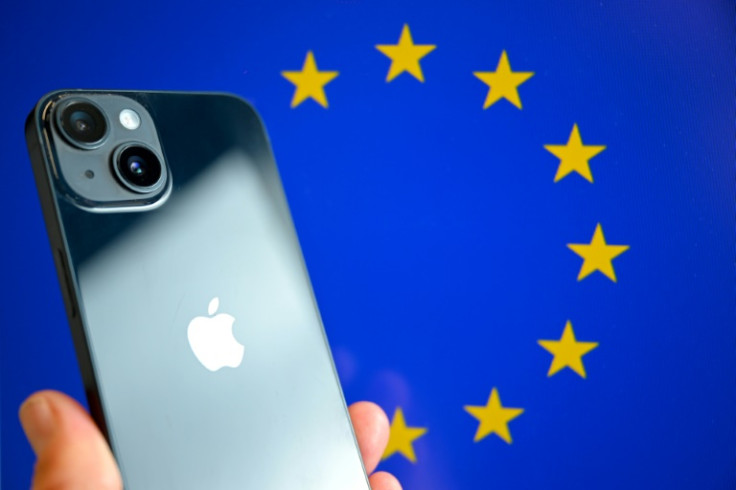EU Scores 'Big Win' In Court Against Apple, Google

The EU's top court on Tuesday delivered two major victories in the bloc's battle to rein in tech giants by ruling against Apple and Google in separate legal sagas with billions of euros at play.
The decisions give a boost to the bloc's outgoing competition chief, Margrethe Vestager, who had suffered a series of setbacks in EU courts against her decisions.
Concluding a long-running legal battle, the European Court of Justice ruled that the iPhone maker must pay 13 billion euros ($14.3 billion) in back-taxes to Ireland.
"The Court of Justice gives final judgment in the matter and confirms the European Commission's 2016 decision: Ireland granted Apple unlawful aid which Ireland is required to recover," the court said in a statement.
Minutes later, the court also upheld a 2.4-billion-euro fine against Google, one of a string of high-profile EU competition cases targeting the tech giant.
The court dismissed an appeal by Google and its parent company Alphabet against the fine, slapped on the search engine in 2017 for abusing its dominant position by favouring its own comparison shopping service.
Vestager hailed the rulings as a "big win for European citizens and for tax justice" and warned that the EU would "continue to push" and "go after" abuses of dominance.
Apple and Google said they were "disappointed" by the decisions.
Ireland, which is home to Apple's EU headquarters and had challenged Brussels' position, said it would "respect" the court's findings.
One of the most bitter legal battles between the European Commission and big tech, the Apple case dates back to 2016 when the EU's executive arm claimed Ireland allowed the iPhone maker to avoid billions of euros in taxes.
By the commission's calculations, Dublin allowed Apple to pay a tax rate of one percent of its European profits in 2003 which then dropped to 0.005 percent by 2014.
It was one of several investigations over the previous decade into sweetheart tax arrangements between major companies and several EU countries.
But Apple on Tuesday said there was no "special deal".
"We always pay all the taxes we owe wherever we operate," the company said in a statement.
"The European Commission is trying to retroactively change the rules and ignore that, as required by international tax law, our income was already subject to taxes in the US," it added.
The ruling is a blow for Apple as the iPhone maker had gained the upper hand in the Ireland case in 2020, when the EU's General Court annulled the order for it to pay the taxes owed.
Following an appeal by Brussels, the legal adviser of the higher European Court of Justice in November recommended scrapping the 2020 decision, saying it was peppered with legal errors.
The top court, which could have sent the case back to the lower court, decided to rule that Apple should pay the back-taxes.
The conclusion to the case spelled relief for Brussels, which has faced difficulties defending its tax enforcement moves in recent years, with previous cases lost against Amazon and Starbucks.
Vestager admitted she was "positively surprised" by the decision but warned "there is still an occurrence of massive profit shifting into low tax territories".
She will be replaced later this year when the new European Commission takes office, and advised her successor to "make this one of many necessary priorities".
The EU fine against Google was one of several record penalties imposed for violating EU competition rules, totalling around eight billion euros between 2017 and 2019.
"We are disappointed with the decision of the court," Google said. "We made changes back in 2017 to comply with the European Commission's decision."
Google faces yet another test next week when the top EU court will decide on the smallest of those fines, worth around 1.49 billion euros.
Legal headaches for Google are mounting across the Atlantic as well.
A trial began on Monday in the United States where the government accuses Google of dominating online advertising and stifling competition.
It comes after a US judge ruled last month that Google maintained a monopoly with its search engine.
Google's so-called ad tech -- the system that decides which online adverts people see and how much they cost -- is an area of particular concern for regulators worldwide.
Brussels in a preliminary finding last year accused Google of abusing its dominance of the online ad market and recommended the US company sell part of its ad services to ensure fair competition.
© Copyright AFP 2025. All rights reserved.





















